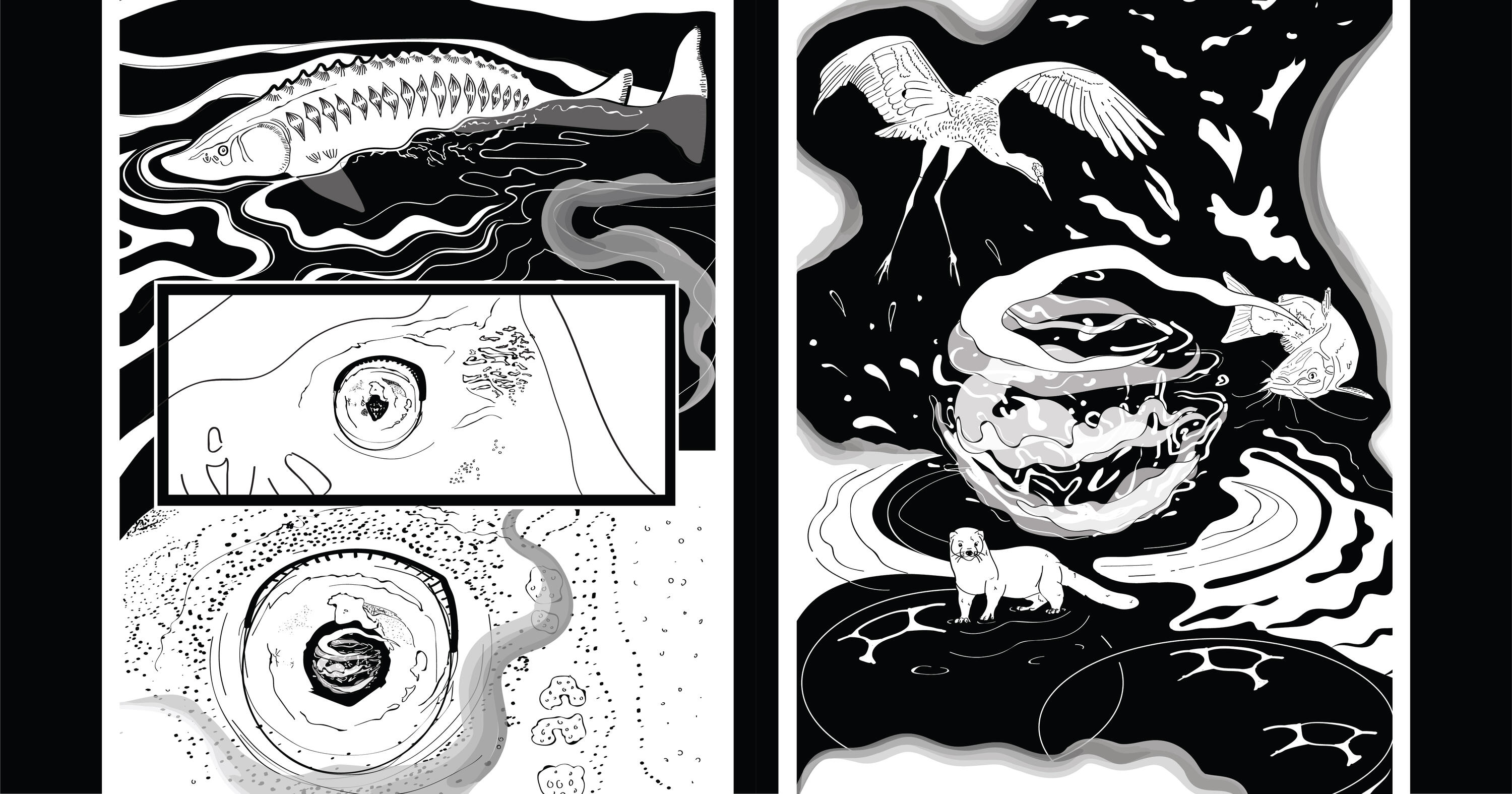We Belong with the Water: Mobility, temporal habitation, rituals and other 'incidental' elements surrounding fish harvesting traditions of Indigenous communities in Southern Georgian Bay - A Graphic Novel

For over 200 years, the delineation of the land and subsequent colonial settlement throughout Canada has subjugated and removed Indigenous presence from the land. This includes their constructions, tools and laws connected to their harvesting practices.
Along the shorelines of Georgian Bay, this colonial violence continues with settler conservation-regulations and policies that assist to commodify the Bay for tourists and cottagers. This has had a profound effect on Indigenous people’s access to and sovereignty over the water and surrounding landscape, weakening and sometimes severing an important relationship with the land. As such, cabins, docks, drying and smoking structures built by Canada’s Indigenous people during expeditionary hunting and fishing trips have long disappeared from public spaces along the shoreline. These structures are not only intrinsic to the harvesting ritual but also existed as a way to harvest efficiently, access knowledge, connect oneself to culture and establish a sacred connection to land and water. This Indigenous occupation of the land for harvesting as well as their use of nets has produced many conflicts between conservationists and cottagers who worry about the stewardship of the land. For decades, cottagers and sport fishers claim that Indigenous rights interfere with generations of wilderness recreation and diminishing fish stocks, perpetuating harmful stereotypes.
The aim of this research is to draw attention some of the conflicts and challenges Indigenous people face, and in particular, Non-Status and Métis people, when trying to take part in harvesting in the Bay. These classifications of Indigenous people have a particularly fraught relationship with the dispossession of land and harvesting rights since they were never formally recognized by the Federal Government until less than a decade ago. However, their rights remain tenuous since generations live with a profound loss of knowledge linked to their harvesting practices within their communities. Using the format of a graphic novel, I interpret my own experiences and connection to my historic community of the Georgian Bay Métis through a fictional tale of resilience, perseverance, and connection to one’s rights. The novel identifies elements that are in fact necessary and not incidental within the fish harvesting ritual and challenge the need to reaffirm Indigenous rights and visibility in spaces that they have been pushed out of for so long. This story not only serves to acknowledge the difficulties Indigenous people face but also the fears and doubts in exerting the rights gifted to us by our ancestors. people face but also the fears and doubts in exerting the rights gifted to us by our ancestors.
The examining committee is as follows:
Supervisor:
Jane
Hutton
Committee
Members:
Marie-Paule
Macdonald,
Andrew
Levitt
External
Reader:
Andrew
Judge
The defence examination will take place: June 5, 2020, 2:00pm, closed defense.
The
committee
has
been
approved
as
authorized
by
the
Graduate
Studies
Committee.
A
copy
of
the
thesis
is
available
for
perusal
in
ARC
2106A.